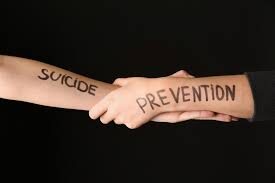I found ways to survive the most violent attacks motivated by the drive to protect my children, for if anything happened to me, what would happen to them? Many times, I wanted to kill my husband while he slept and this would be a solution that would stop the ongoing pain. But I was restricted from killing because of my love and devotion for God at that time and I have had clients who have used lethal force to defend themselves, and their abuse stopped at the moment of their abuser’s death, but the trauma ties did not stop, as the chain of trauma continued to add new links associated with having to kill their abuser.
One such case is that of Idolina, a young woman who was abused in her youth by family members and in adulthood by her husband. She did find the courage to leave her abusive husband, file for divorce, and get a restraining order, with the support of friends. She took up a romantic relationship with one of her friends and they were cooking dinner together when the husband crashed through the back door and attempted to kill the boyfriend.
Idolina’s father gave her a gun and taught her to use it, which she kept loaded and ready in the bedroom, just in case. While the husband and the boyfriend were struggling, she ran into the bedroom to get the gun. When she came out, she shouted at her husband and told him to stop, or she would shoot him.
The husband then came after her to kill her, and she had to shoot him twice to stop him. The boyfriend called 911 and the husband died before the ambulance arrived. The abuse stopped, but new trauma links were added to the chain.
Idolina was investigated for murder, which was traumatic in itself, but the nightmares that haunted her for having to take such drastic measures, to actually kill a man she loved and married… Yes, she did file for divorce and get a protection order to stop the abuse, but it wasn’t enough, and she feels like he intended to haunt and terrorize her forever in this way.
As Idolina’s Certified Trauma Advisor using hypnosis and Curandero Therapy, I was able to assist her on her journey and she is no longer haunted or traumatized by her husband, and she is using her experience to reach out and help other women who find themselves in otherwise impossible abusive relationships.






